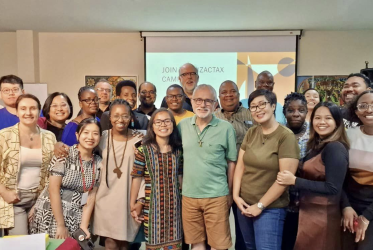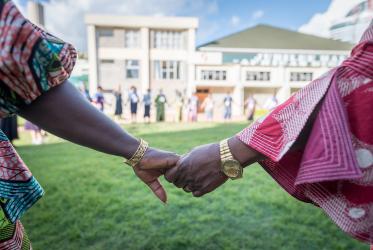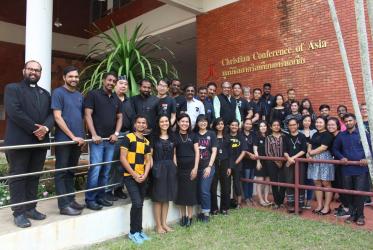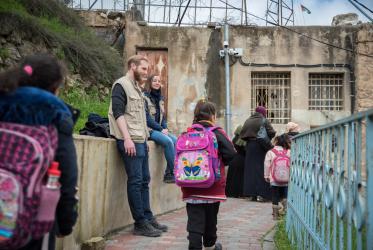Displaying 1 - 20 of 207
25 April 2024
WCC webinar explores decolonizing beauty
11 December 2023
Ahead of Her Time
Pan-African Women of Faith and the Vision of Christian Unity, Mission, and Justice
01 November 2023
GEM School explores how to make new economic world order a reality
08 September 2023
Celebratory event discusses Black leaders’ contributions to WCC
06 September 2023
WCC Eco-School for Europe and North America region
11 - 18 November 2023
Orthodox Academy of Crete, Greece
Seven Weeks for Water 2023 takes global approach
22 February 2023
















